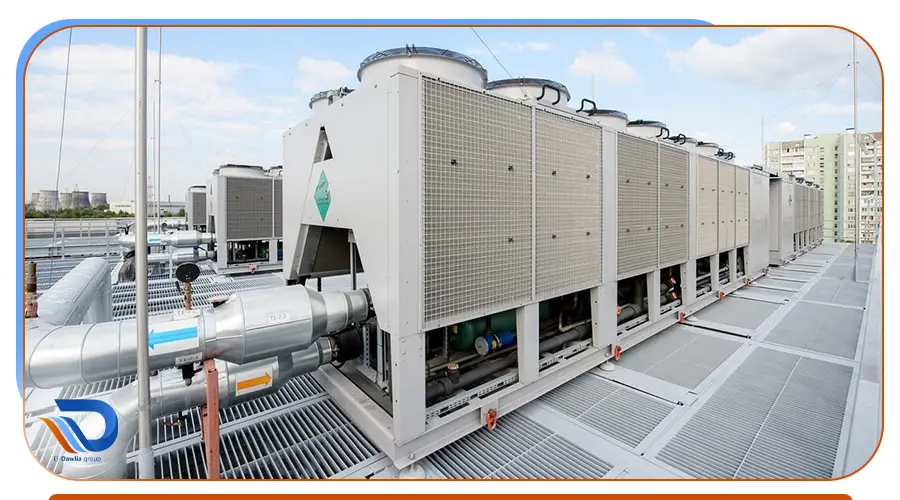The chiller with a remote condenser offers a fresh approach to managing temperature and comfort by separating the chiller and its condensing unit, allowing for increased flexibility in installation and operation.
In this article, we will look at the benefits of a chiller with a remote condenser and how this innovation is changing the way we think about cooling in commercial and industrial settings. Join us on a journey to discover a new era in cooling technology and the benefits it brings to a wide range of industries and businesses.
What is a chiller with a remote condenser?
A chiller with a remote condenser is a type of cooling system that transfers heat from a process fluid to an outdoor condenser unit using a refrigerant. This design allows for greater flexibility and efficiency in chiller system installation and operation.
The advantages of Chiller with a remote condenser
Some of the advantages of remote condenser chillers are:
- More storage space: A remote condenser chiller has fewer components in the main body of the refrigerator, which means more room for storing products.
- Less noise: A remote condenser chiller eliminates any noise issues, which is ideal for display units or refrigerators in grocery stores.
- Lower electric bill: A remote condenser chiller produces less heat than your air conditioning needs to deal with, which can reduce your energy consumption and costs.
- Higher efficiency: A remote condenser chiller uses a stainless plate heat exchanger for evaporator and condenser, which results in maximum heat transfer between refrigerant and water circuits with high efficiency.
Application of Chiller with a remote condenser
Some of the applications for a chiller with a remote condenser include:
- Industrial processes: A remote condenser chiller can provide cooling to various types of industrial processes, such as plastic molding, metal working, food processing, chemical processing, etc.
- Display units: It can be an ideal choice for display units or refrigerators in grocery stores. So they can avoid noise and heat issues by placing the condenser outside.
- HVAC systems: A remote condenser chiller can be used to cool water or air for heating, ventilation, and air conditioning (HVAC) systems in buildings, where space and energy efficiency are important factors.
Disadvantages of Chiller with a remote condenser
A chiller with a remote condenser can have several disadvantages, including:
- Installation Complexity as It requires additional refrigerant lines and components to connect the chiller to the remote condenser.
- Maintenance challenges arise as technicians may have to deal with outdoor weather conditions, which can increase service costs.
- Increased energy consumption and operating costs.
- exposure to environmental factors such as temperature extremes, rain, and debris.
Despite these disadvantages, chiller systems with remote condensers can still be a practical choice in certain situations, particularly when space limitations or other specific requirements make them a viable option.
El Dawlia Group is a leading company in HVAC, central air conditioning, ventilation, fire alarms, and firefighting work. Contact us today to experience unparalleled comfort and superior air conditioning solutions.
FAQs
[sc_fs_multi_faq headline-0=”h2″ question-0=”What is a remote evaporator?” answer-0=”Is a key component in a refrigeration or air conditioning system. It is responsible for the evaporation of refrigerant, which absorbs heat from the surrounding environment, cooling the space or equipment.” image-0=”” headline-1=”h2″ question-1=”ًًWhat temperature is a condenser chiller?” answer-1=”The typical temperature range for a condenser chiller is between 27°C and 50°C. However, this may vary depending on the design and operation of the chiller system” image-1=”” count=”2″ html=”true” css_class=””]


